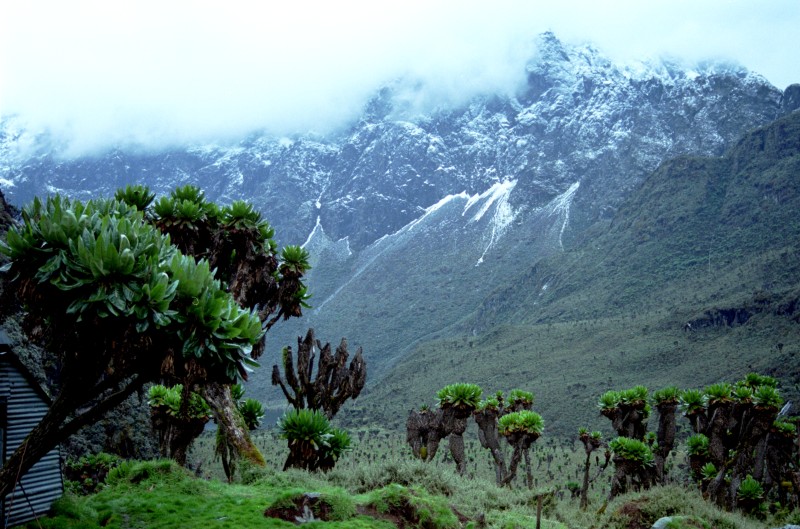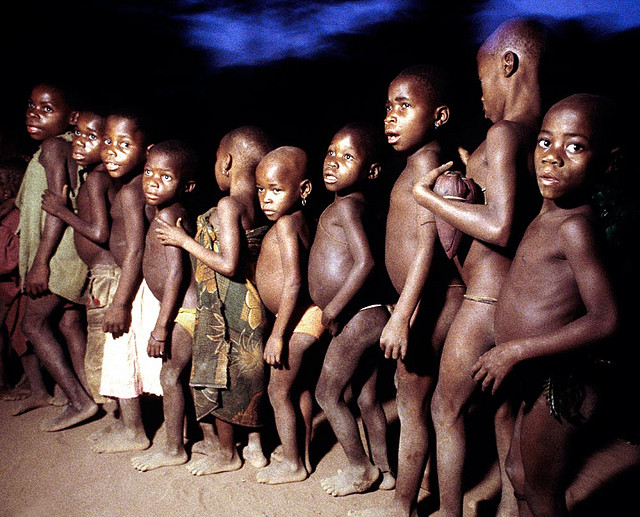Elvira, IV3FSG will be active as TL8ES from M'Baiki, Central African Republic, 22 November - 9 December 2024.
She will be active on HF Bands, SSB, Digital Modes.
Recent DX Spots TL8ES
TL8ES Log search QSL via IK2DUW.
Central African Republic - the epicenter of political crisis and military conflicts
The Central African Republic is a state in the heart of the African continent, known for the untold wealth of its subsoil and its impoverished population. Until 1958, the CAR, like other lands of equatorial Africa, was a French colony called Ubangi-Shari. The country received its modern name when it gained independence. Nowadays, the Central African Republic is not at all attractive for tourists. Firstly, the territory is landlocked, and secondly, political instability and related frequent armed conflicts do not favor the development of cultural life and tourism

Nature and climate of CAR
The country is the 42nd largest country in the world, with an area of 623 kilometers square. The territory of the country has a compact shape, slightly elongated from west to east. The relief of the Central African Republic is represented by a plateau with small drops, which is located between the basins of large water bodies - Lake Chad and the Congo River.
The climate is characterized by high humidity, the average annual temperature is +25-27°C . The average annual rainfall is up to 1250 mm, with the peak of the rainy season falling between July and October. The driest months are winter months, December and January. The vegetation is not rich, only in the north you can see dense tropical thickets, the rest of the territory is represented by sparse forests with scanty vegetation.
European colonizers in Central Africa
The first Europeans to set foot on the lands of the present-day CAR were Belgian and French conquerors. In 1891, the first fort was founded on the banks of the Ubangi River, which served as a support for further colonization of the land. Later, as a result of agreements with English and German colonizers who owned neighboring lands at that time, the modern borders of the present CAR were outlined. In 1903, the colony of Ubangi-Shari was officially established.
The indigenous population of the colony was unwilling to accept the new authority and actively fought for their independence from the very founding of the colony. Over the course of several decades, many coup attempts were made, but all rebellions were brutally suppressed by the French. As a result of bloody repressions in some areas, the local population was reduced by 70-80%. The consequences of the demographic catastrophe of those years are still observed today, aggravated by a deep economic and political crisis.
In the 20th years of the last century the French actively undertook the development of agriculture, in particular, cotton and coffee were actively grown. In the same period, gold and later diamonds were discovered in the bowels of the colony, which had an indelible impact on the country's
After World War II, the independence movement intensified. The first political party of local public figures was founded. During the same period, the first member of the French Parliament, a native of the colony, Barthelemy Boganda, became a symbol of the struggle for independence. It was Boganda who initiated the formation of the sovereign state of the Central African Republic.

The period of long-awaited independence
On August 13, 1960, the independence of the republic was officially proclaimed, headed by President David Dako. However, the period of calm was short-lived, and just a few years later the country was again engulfed by political crisis and internal military confrontations.
In the mid-60s, as a result of a military coup, the post of president was taken by the eccentric Jean-Bedel Bokassa, who from the first days of his rule began to demonstrate extraordinary behavior. Thus, the new head of state declared himself an emperor and even held a coronation ceremony, which cost the country 25 million dollars. Despot, dictator and corrupt Bokassa was even accused of cannibalism.
In the late 70's the situation in CAR deteriorated to such an extent that France was forced to intervene in the country's affairs. In 1979, a detachment of French paratroopers overthrew Bokassa, and the presidential post was retaken by Dako. Two years later, the latter was also overthrown, this time in a peaceful coup, his place was taken by General Andre Kolingboi, who held office until the early 90s and was forced to resign under international pressure.
The beginning of the 21st century was marked by a new round of political instability. Several rapid changes of power have shaken the CAR economy even more, plunging the population into misery. In the struggle for political stability, the international community has had a great impact to this day.
Ethnic composition of CAR and cultural traditions
More than 90% of the population is indigenous, descended from various tribes, mainly the Nigger-Congo group. The long-standing presence of the French has had an indelible influence on the culture of the locals. Thus, the official language of the Central African Republic is French, along with which the local Sango language is used in everyday life. Almost half of the inhabitants are illiterate, which is caused by internal instability and frequent military coups.
80% of the population professes Christianity, in particular, 50% are Protestants and Lutherans, the rest profess traditional Catholicism. Until 2013, there were many Muslims living in CAR (about 15% of the total population), who had to leave the country due to persecution and flee to neighboring countries.
The population of the Central African Republic is at risk of extinction
The Central African Republic is among the poorest countries in Africa, despite its rich natural resources. With a population of about 4 million, nearly two-thirds face the threat of starvation. According to the World Food Program, 2.5 million people in the CAR are at risk of starvation due to food shortages and widespread poverty.
In their reports, representatives of international humanitarian organizations stress that such a dire situation is caused by permanent armed conflicts within the country. Many families, fearing for their lives, have been forced to repeatedly abandon their homes, move from place to place and become internally displaced, or flee to neighboring countries altogether. Families have been forced to abandon their homes, leaving behind all their belongings and leaving with nothing. In such circumstances, people are unable to work and children are unable to receive an education.
In turn, local farmers and producers have been unable to continue their activities in recent years, resulting in a food crisis and exorbitant prices for all foodstuffs. Currently, international organizations are providing humanitarian assistance to the people of CAR, but it is not possible to fully cover all the needs of the impoverished population.

